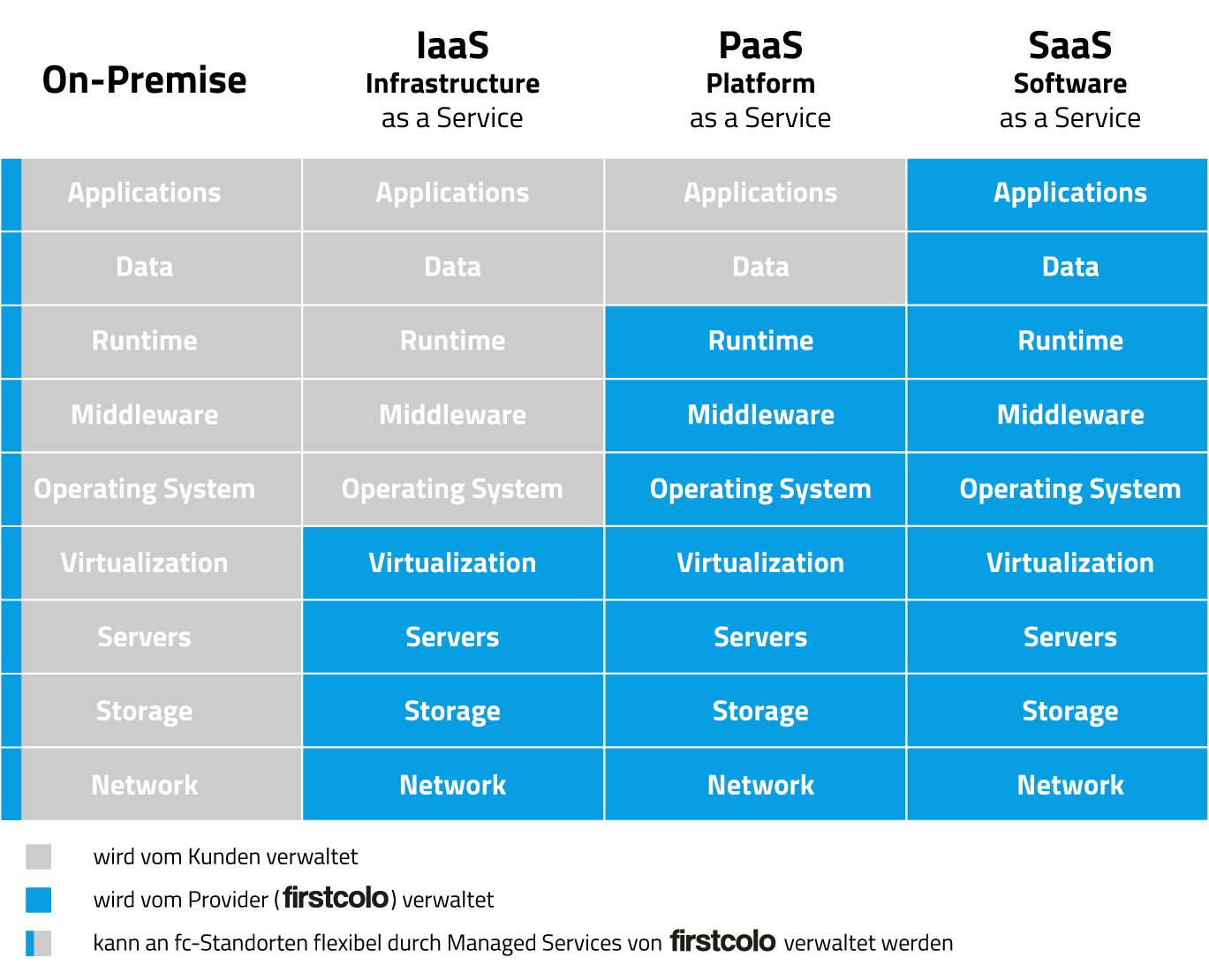What Is a DDoS Attack and How Does It Work?
DBaaS (Database as a Service) is a cloud computing service for managing and storing data. Cloud computing can be divided into three areas: Infrastructure as a Service (IaaS), Platform as a Service (PaaS), and Software as a Service (SaaS). Database as a Service falls under the PaaS category. DBaaS is a managed service that provides access to a database via the network and is billed on a usage-based model.

Cloud computing models at firstcolo
DBaaS thus describes a cloud-based database model where a provider takes over the provisioning, management, and maintenance of the database. Companies use a fully managed database without having to install their own hardware or software. DBaaS solutions offer a wide selection of database types, such as relational, NoSQL, and in-memory databases.
Advantages of DBaaS
With Database-as-a-Service, companies can significantly simplify their database infrastructure. A key advantage is the relief of internal IT. The data center takes care of maintenance, security updates, and backup of the database, so you no longer have to perform these tasks manually. This not only saves time but also costs.
Scalability is another significant advantage. DBaaS allows databases to be scaled quickly and efficiently without adding physical servers or changing configurations. As requirements grow, the provider simply increases the resources – and vice versa.
High availability is also a crucial point. DBaaS services ensure that your database is available around the clock, supported by redundancy and failover mechanisms. This minimizes the risk of downtime.
Application Possibilities
Database-as-a-Service is particularly suitable for companies that develop applications and need to react quickly to changing market conditions. Developers can create, manage, and test databases without much effort. Through automated backups and security updates, the focus remains on actual development.
DBaaS is also ideal for data-intensive applications such as Business Intelligence (BI), analytics tools, or big data projects. It can be easily integrated into existing IT infrastructures and offers flexible storage solutions for large amounts of data.
Why DBaaS in a data center?
DBaaS in a data center offers additional security benefits and increased availability. Databases benefit from the robust security and backup mechanisms of a data center. Moreover, the infrastructure of a professional data center ensures reliable performance, redundancy, and lower latency times.
The interplay of DBaaS and a high-quality colocation environment ensures that your database solutions are always available and optimally protected.



